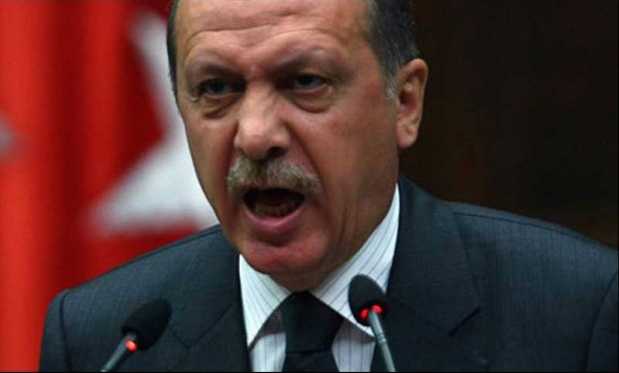Is Turkey losing its balancing act in the new Middle East?
Posted By Lenore Martin, Joshua W. Walker Thursday, May 26, 2011 – 3:20 PM Share

President Obama’s Middle East speech last week laid out a policy of support for the growth of democracy and peace in the area. He challenged all the players in the region to support self-determination, equal opportunity, democracy, political and civil rights and religious tolerance. He stated that democracy requires a free press and right to assembly. He called for a Palestinian state based on 1967 borders. The President has a clear vision of U.S. policy in the Middle East.
It is not obvious that the Turkish government could make the same declarations.
Under the Justice and Development Party (AKP) Turkey is having a tough time adjusting its much heralded foreign policy of “zero problems with neighbors” to the new realities of the Middle East. Foreign Minister Ahmet Davutoglu says Turkey wants good relations with the people and regimes of the region. However the people of the Middle East are challenging their own dictators today. Tomorrow they will remember the states that supported the brutality of these regimes. Turkey must therefore realize the soft power they extol in their active diplomacy as a regional leader is not just about trade and diplomacy. It also calls for active support for democracy, human rights, and the rule of law.
The AKP came to power with the promise of furthering Turkey’s Western orientation through the EU process. But under the leadership of Prime Minister Recep Tayyip Erdogan and guidance of Davutoglu for the past eight years, Turkish foreign policy has been turned on its head by prioritizing its Middle Eastern neighbors rather than its traditional allies in the West. Beginning with its rejection of the U.S. request to enter Iraq through its territory in 2003, Turkey surprised many with its newfound independent streak. It built on this anti-Western popularity with Erdogan’s rhetoric at Davos in 2009 and increasingly hostile attitude towards Israel after the 2010 Gaza flotilla incident. This precipitated a honeymoon between Turkey and the Arab world, with Erdogan enjoying the highest popularity of any leader throughout the region. Turkey’s support for a second flotilla to Gaza and its bellicosity towards Israel now stands in noticeable contrast to its silence on attempts by the regimes in Iran and Syria to bury their citizens’ demands for democracy.
Having misjudged Libya by initially rejecting sanctions and even opposing NATO’s involvement, losing much credibility before changing course, Turkey finds itself in the uncomfortable situation of being a flip-flopping regional power. Now with the ongoing protests and brutal repression by Turkey’s closest “brother” Assad, Ankara once again seems to be sticking to its mantra of “zero problems” even as Syrians die every day. Syria has been the showcase of Turkey’s policy of engagement in the Middle East. Therefore how and with what speed it acts will be consequential for Turkey’s future role in the region. The people of the area will be looking for more than rhetoric. The EU and U.S. have imposed sanctions. Will Turkey too take action?
Turkey emphasizes its uniqueness as an indigenous Muslim democracy. Yet that democracy was facilitated not by its Middle Eastern neighbors but by its evolution within the community of Western nations. As a G-20 founding member, NATO member, and EU aspirant, Ankara has transformed itself into an international actor, capable of bringing considerable clout and influence to the region precisely because of its Western orientation — and not in spite of it.
Turkey should use the huge economic, moral, and political capital it has invested in its rapprochement with the Middle East to promote to its neighbors what Turkish citizens have been enjoying for decades — a vibrant democracy that in spite of its imperfections is seen as an example of reform in the region. Ankara can make a difference by publicly and firmly telling Damascus and Tehran to call off their security forces and institute meaningful reforms with tangible economic incentives. Ankara has the most to gain from a transformed Middle East which will increasingly look to Turkey for guidance and leadership.
The AKP’s confusing policies risk losing not only its credibility in the region as a champion of democracy but also its voice within the community of Western allies. Ankara needs to regain its balance among its neighbors and its allies. Its newfound status as a Middle Eastern power does not have to come at the expense of losing its hard-earned Western credentials.
Dr. Lenore Martin is the Louise Doherty Wyant Professor at Emmanuel College and Associate of the Weatherhead Center for International Affairs and the Center for Middle Eastern Studies both at Harvard University.
Dr. Joshua W. Walker is a postdoctoral fellow at the Crown Center for Middle East Studies at Brandeis University and a research fellow at the Belfer Center at the Harvard Kennedy School.
via Is Turkey losing its balancing act in the new Middle East? by Lenore Martin and Joshua W. Walker | The Middle East Channel.





